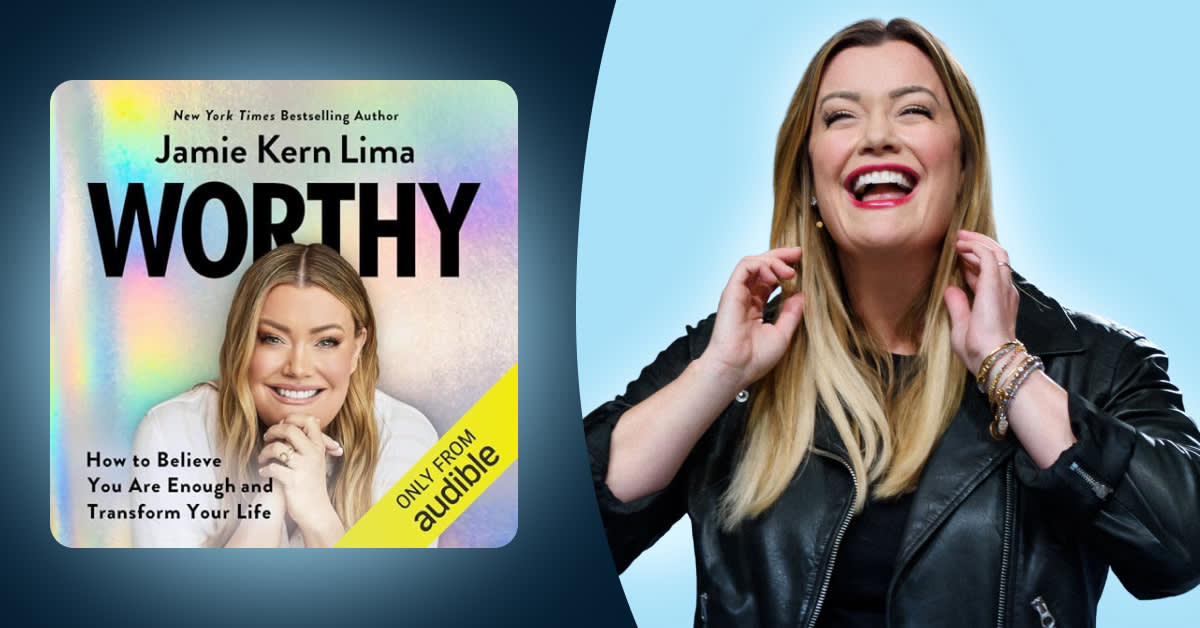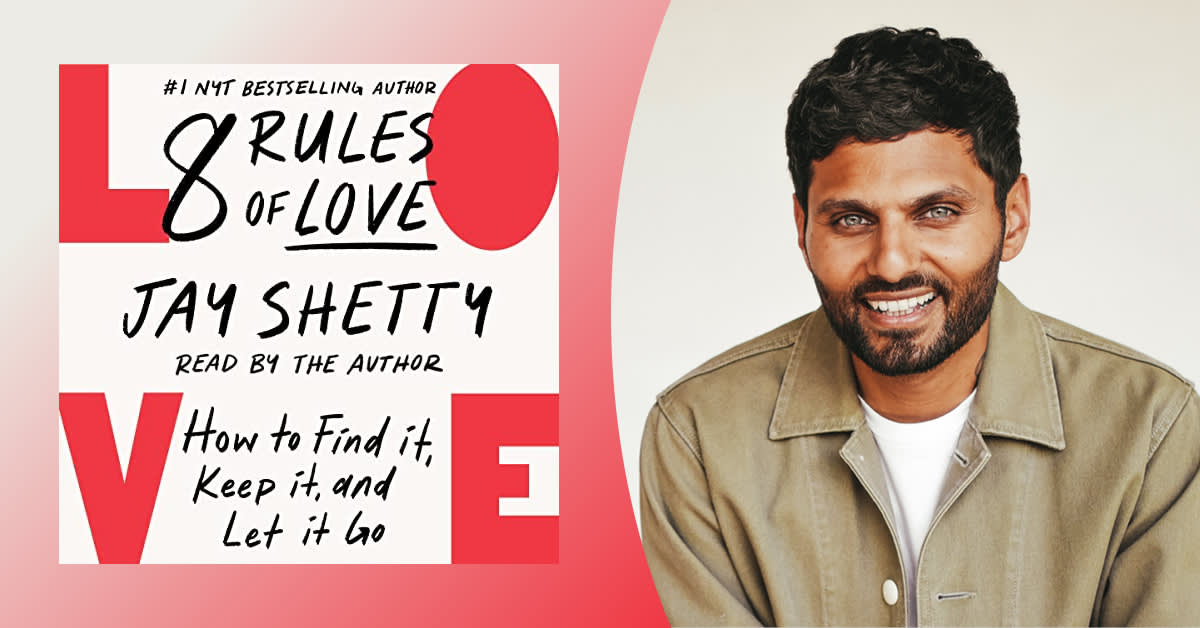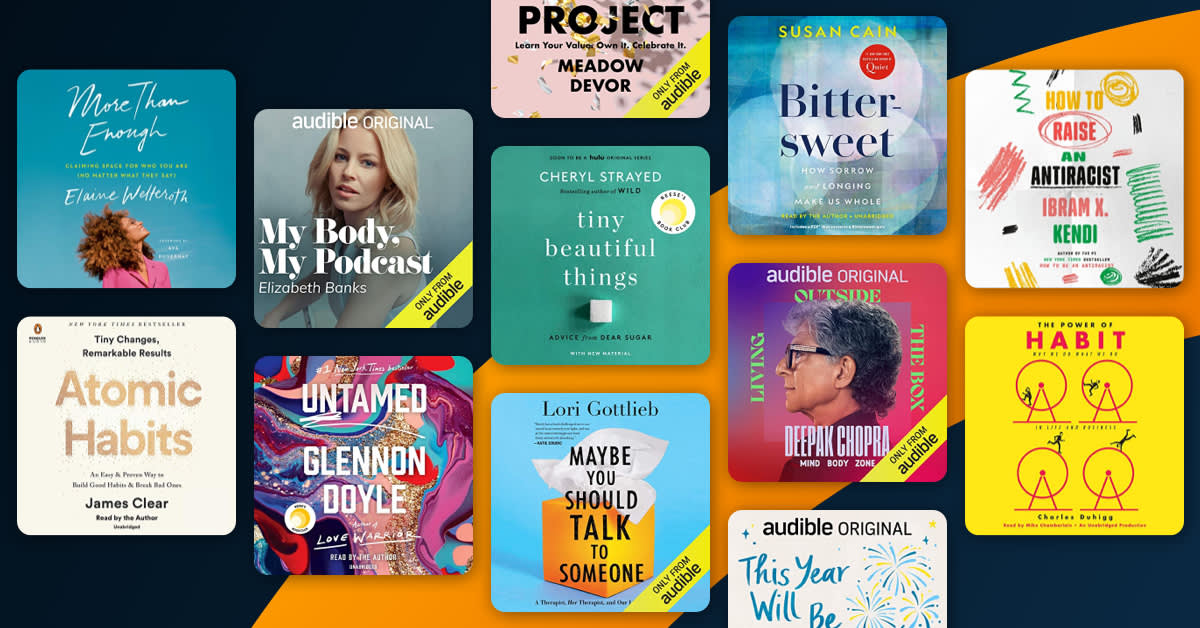Viral life coach Hailey Magee’s audiobook Stop People Pleasing helps listeners identify the patterns that hold them back from addressing their own priorities, and adopt a new approach to letting go of what doesn’t serve them. Through a refreshing process that utilizes psychology and hands-on coaching exercises, listeners will learn how to make time for themselves, discover pleasure, and put an end to ranking others’ needs above their own. In this brief Q&A, I asked the author to expand on her own experience as a former people pleaser and what it was like narrating her audiobook. Plus, she shares a few tips for anyone who needs to work on setting better boundaries today.
Rachael Xerri: What is a people pleaser? What are they sacrificing to be one?
Hailey Magee: A people pleaser is someone who chronically prioritizes others’ needs, wants, and feelings at the expense of their own needs, wants, and feelings. People pleasing is an outdated coping mechanism that we learned would keep us safe—physically, emotionally, materially, or socially safe—in the past, particularly in childhood. But now, as adults with greater agency and choice, people pleasing comes at a high cost.
Over time, we become strangers to ourselves; we're highly attuned to others’ moods and feelings, and completely unmoored from our own. When others ask us what we want or dream of, we're disturbed to find that we have no idea. As a result of neglecting our needs, our physical and mental health suffer, we burn out in our relationships and workplaces, and we fail to experience the joys of healthy intimacy because we keep our true selves hidden behind a mask. Combined, these factors prevent us from feeling connected to our own agency and sense of power.
What is the moment you realized you needed to stop being a people pleaser? How has your life changed since?
For the first 24 years of my life, I over-gave to the point of exhaustion, neglected my needs for others’ comfort, and stayed in painfully imbalanced relationships. I desperately wanted to feel authentic and empowered, but I had no idea how to break these patterns of self-abandonment.
I hit my "people-pleasing rock bottom" when I went through an earth-shattering breakup. Utterly alone, I was heartbroken to realize the extent to which I’d lost myself in my ex. Without him, I felt empty, directionless, and totally disconnected from any sense of my own value. As awful as the pain of that breakup was, it helped me realize that I would never find contentment if I kept basing my worth on others’ approval. I realized I had to discover who I was beneath my people pleasing—and I had to give myself permission to take up space, fears of “you’re too much” be damned.
Slowly, I got familiar with my own needs, dreams, and goals. I learned to listen to my body, honor my emotions, and become the safe haven I’d always sought in other people. Most importantly, I learned how to speak up, assert myself, and be my own best advocate, even in the face of guilt and fear.
Years later, I've been able to explore deeply loving romantic partnerships, build the business of my dreams, heal childhood hurts and develop honest relationships with family members, and set boundaries that protect my body, heart, and spirit. My actions align with my words, and my words align with my values. The person I am inside matches the person I am outside, and after years of self-neglect, I finally feel like I have my own back.
Were there any moments from your story while you were performing the audiobook that surprised you?
Oh, yes! I was reading the epilogue—where I talk about how my life has changed since breaking the people-pleasing pattern—and when I got to the section about how my relationships with my family members have improved, I burst into tears. There's this line: "As for my family: I have the gift of knowing that if they disappeared from the face of the earth tomorrow, there would be nothing left unsaid between us. I’ve shared old grievances and set new boundaries that have been received with more grace and compassion than I could have ever asked for."
And it's true. By far, the hardest boundaries I've ever set have been with my parents. When I was 25, I finally addressed our family dysfunction with them after years of silently accumulating resentments. It was the most difficult series of conversations I've ever had, and for a few years, I was terrified that I'd ruined our relationships forever.
But we were able to move through it and establish new, healthier ways of interacting with one another. Now, years later, I'm so grateful I had the courage to speak up when I did—and I'm so grateful my parents were receptive to hearing my hurts. I recognize that not everyone has the privilege of this sort of familial healing; it’s a gift I don’t take for granted.
Do you have any tips for someone who wants to stop people pleasing today?
Stop People Pleasing is the book I wish I'd had when I started speaking up for myself, so I recommend starting there! Here are three simple tips to get you started:
1. Pay attention to your difficult feelings like anger, resentment, overwhelm, frustration, etc. When you feel this way, ask yourself: "What unmet need is this difficult feeling communicating to me?" Our difficult emotions are like signposts signaling unmet needs beneath—and only when we've identified those needs can we effectively advocate for them in our relationships.
2. The next time you're nervous about setting a boundary, take a moment to imagine what your life would look like in six months, one year, and five years if you never spoke up and continued on in silence. Usually, it's a pretty bleak imagining! This exercise reminds us that we can’t let the pains of change blind us to the pains of staying the same. Before, our pain was a dead-end street; it was leading us deeper into people pleasing, deeper into resentment, and deeper into isolation. But the growing pains we feel now are leading us toward a healthier, happier, and more vibrant life.
3. Remember, speaking up and being honest doesn't just benefit you—it benefits the people close to you. In healthy relationships, the people close to us will want to hear what we feel, how we need, and how we hurt. This doesn’t mean they will always agree with our feelings, meet every need, or respond perfectly to our grievances. But in healthy relationships, people prefer uncomfortable honesty to dishonesty because dishonesty breeds distrust and resentments that fester with time.





